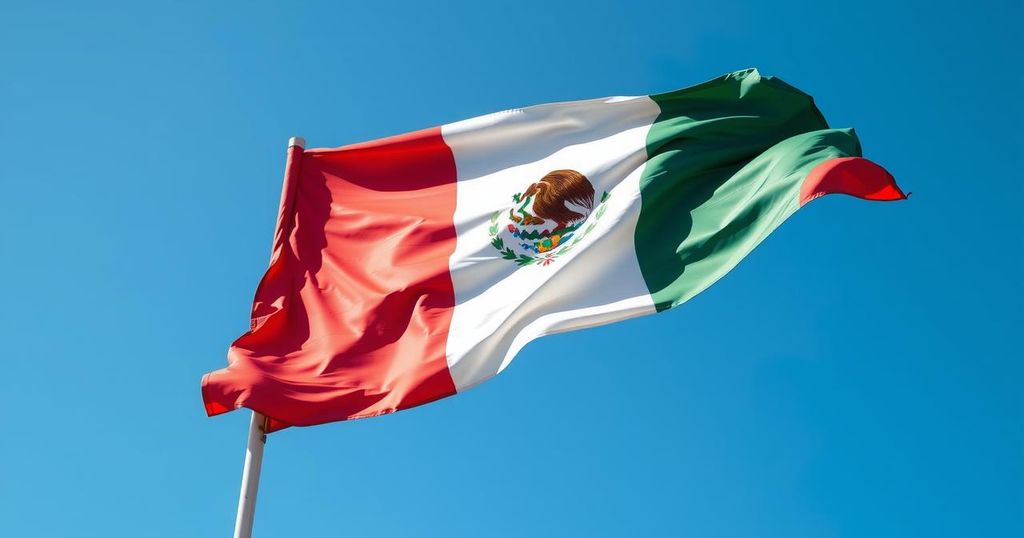Mexican President Rejects Trump’s Offer of U.S. Troops to Combat Cartels

Mexican President Claudia Sheinbaum has rejected an offer from former U.S. President Donald Trump for military assistance to combat drug cartels, affirming Mexican sovereignty. While acknowledging collaborative efforts, she emphasized that no U.S. troops would be allowed on Mexican soil. The White House cited successes in joint operations but acknowledged that more must be done to combat drug-related violence.
In a recent development, Mexican President Claudia Sheinbaum has publicly rejected a proposal from former U.S. President Donald Trump for military assistance to combat drug cartels in Mexico. In response to a report published by the Wall Street Journal, Sheinbaum confirmed that the offer was indeed made. Trump had reached out, asking, “How can we help you fight drug trafficking?” to which Sheinbaum firmly stated that Mexico will “never accept” the presence of U.S. troops in its territory.
During the conversation, Sheinbaum emphasized the importance of Mexican sovereignty. “No, President Trump, our territory is inalienable, sovereignty is inalienable,” she expressed. She mentioned that collaboration is possible, but it must take place on their terms: “We can work together, but with you in your territory and us in ours. We can share information, but we will never accept the presence of the United States Army on our territory.”
The White House responded to Sheinbaum’s statements. Deputy Press Secretary Anna Kelly commented on the existing cooperation between the U.S. and Mexico, stating, “President Trump has worked with President Sheinbaum to advance border security collaboration with Mexico to the highest levels ever.” Kelly asserted that this collaboration has led to significant results, including the extradition of numerous cartel leaders to the U.S. and improved border security.
Moreover, the Trump administration has employed CIA drones to conduct surveillance operations over Mexico in coordination with the Mexican government. Trump’s administration has formally labeled drug cartels as “foreign terrorist” groups, which reflects an intensified approach to combating drug trafficking.
However, Kelly pointed out that Mexico faces pressure to increase its efforts against these organizations, stressing the need to protect American communities from the influx of drugs and related violence. “We will continue exploring ways to enhance our efforts across the region to dismantle these transnational criminal organizations,” she stated, adding, “We will make America safe again.”
In January, the Heritage Foundation, which is a prominent conservative think tank, released a report that discussed military options concerning the border crisis. They argued that Mexican cartels are growing in power, while illegal immigration and drug trafficking have surged. Nonetheless, the report cautioned that direct military intervention should remain a “last resort” and suggested joint operations with Mexico as more favorable.
The foundation noted that even with the rising threat posed by cartels, it appears unlikely that the stance of Mexico would change under Sheinbaum’s leadership. Overall, these discussions reflect ongoing tensions regarding how best to tackle the escalating issues surrounding drug trafficking and cartel violence on both sides of the U.S.-Mexico border.
In summary, Mexican President Claudia Sheinbaum’s denial of U.S. military assistance from former President Trump signifies a clear stance on Mexican sovereignty. While both nations express desires for collaboration, the refusal of U.S. troop presence underscores the complexities in handling drug cartels. As both countries continue seeking solutions, the balance between sovereignty and security remains a pivotal point in U.S.-Mexico relations.
Original Source: wfin.com








